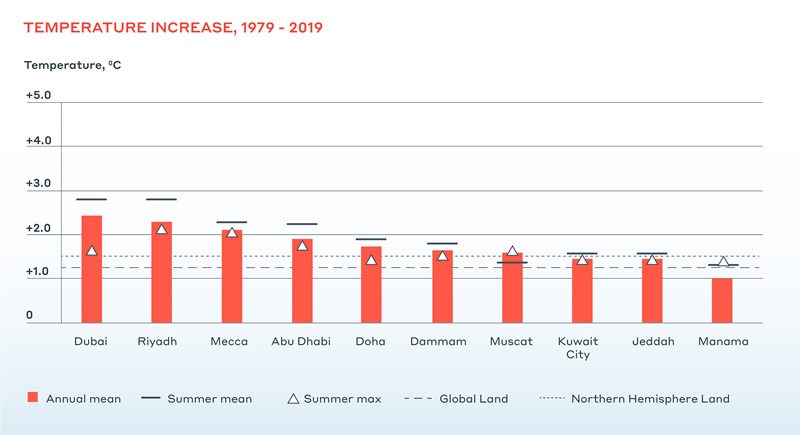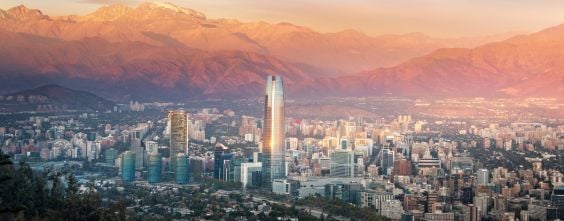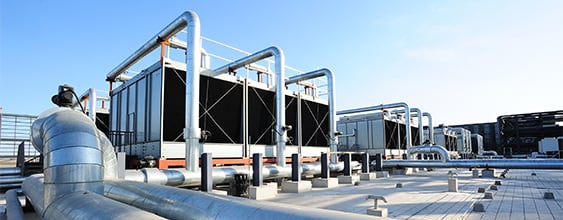Water consumption rates in the Gulf Cooperation Council (GCC) exceed 500 litres per person per day, while annual renewable freshwater resources average less than 100 cubic meters per capitai. With growing populations and rapid economic and infrastructure growth, the region’s demand for water is accelerating and water equity matters are becoming increasingly important.
Water equity in the GCC does not only have to cope with the scarcity of water resources but also with the socioeconomic disparities that impact access and distribution. Urban areas in the region, often characterised by more advanced infrastructure and higher economic resources, typically enjoy better access to high-quality water services compared to rural and less affluent communities. In addition, the increasing pressure on natural resources impacts the resources left for future generations and compromises the environmental health of the region.
This article delves into the challenges facing the GCC in achieving water equity and provides practical solutions and a multi-faceted approach to ensure fair distribution and sustainable management of water resources across the region.

How do we address water scarcity?
Water scarcity remains a significant challenge for the GCC region due to its arid climate and low rainfall. To provide some context, the World Bank reports that the global average rainfall in 2020 was 1170 mm, whereas in the UAE, it was only 78 mm. This scarcity is further compounded by rapid population growth, urbanisation, and industrialisation, putting immense pressure on existing resources to meet the increased demand for water.
To address this, the GCC has turned to desalination as a major solution. GCC countries account for about half of the world's output of desalinated water, with the UAE alone depending on 42% of its potable water from desalination. However, while desalination has enabled remarkable advancements in water accessibility, it also presents challenges related to energy consumption, environmental impact, and cost, all of which are integral to discussions of water equity.
To mitigate these impacts, it is important to optimise the design and operation of desalination plants, such as the strategic placement of intake and outfall pipes to minimise disruption to marine ecosystems. By locating these intakes in regions with fewer marine organisms, the potential harm to marine life can be significantly reduced. Furthermore, the treatment of brine before its discharge into the ocean is crucial. Proper brine management helps mitigate the environmental impact associated with high salinity and chemical content, which can adversely affect marine habitats if released untreated. Establishing and enforcing laws by national regulation will help set standards for desalination plant design and operation.
To further enhance sustainability, desalination plants should be powered by renewable energy sources, such as solar or wind power. Utilising renewable energy can reduce reliance on fossil fuels, thereby decreasing greenhouse gas emissions and associated pollution. WSP in the Middle East has acted as an Operations Engineer on several Independent Water Projects (IWP) where a captive solar power plant is installed to reduce dependence on the grid and help developers reduce the cost of desalinated water. WSP has also advised off-takers and developers in the region, to include renewable energy in their projects, thereby assisting them in the achievement of their net zero commitments.
Reusing treated wastewater for agriculture, district cooling, and industrial purposes is another approach to preserving rapidly depleting freshwater resources. Advanced treatment technologies can harness the potential of treated wastewater as a valuable resource. These technologies should be complemented with strict quality and monitoring controls, better central transmission infrastructure, and improved distribution networks. Wastewater can also be collected from swimming pools, cooling towers and reverse osmosis (RO) reject waste and not only from potable use.
In addition to the conventional wastewater treatment plants across the GCC region, Zero Liquid Discharge (ZLD) technology is slowly gaining attention. ZLD aims to eliminate all liquid waste by treating and reusing wastewater and by-products, thus preventing any discharge into the environment. Although this technology requires high initial costs, their effective use of wastewater treatment recycling and reuse contributing to water conservation makes it appealing.
How do we address Infrastructure disparity?
While urban centres often benefit from advanced systems, some rural areas may lack adequate infrastructure for efficient water distribution and treatment. This disparity affects the quality and reliability of water services.
Addressing this disparity requires building climate-resilient infrastructure that ensures access to clean water in rural and remote regions. Investing in sustainable groundwater management practices in these areas, particularly where desalination is not viable, is also crucial. This includes controlled irrigation, the efficient use of fertilisers and pesticides, vegetative cover for agricultural fields, and consistent groundwater quality monitoring.
In addition, technologies such as rainwater harvesting or fog harvesting, where feasible, could supplement water supplies, particularly in remote or rural areas. Many rural homes can use small-scale rooftop rainwater harvesting to collect rainwater, directing it into storage tanks. Collected rainwater can supplement other water sources when they become scarce.
Fog and dew harvesting technologies are currently low yielding, however, have great potential for improvements. Mesh nets and fog collectors can be installed in certain areas in the GCC, particularly in the southwestern regions like Asir and Jizan, that experience regular fog due to their elevation and proximity to the Red Sea. These regions are more suitable for fog harvesting.
How do we ensure water security for generations to come considering the impacts of climate change?
The GCC region is more vulnerable to the adverse impacts of climate change compared to other regions. This is expected to exacerbate water scarcity with time and further compromise water equity. Rising temperatures, changes in precipitation patterns, and increased frequency of extreme weather events will all have significant impacts on water availability and quality. To put this in context, research done at King Abdullah University of Science and Technologyii illustrates the rising temperature from 1979 to 2019 across the GCC region. Some GCC cities such as Manama and Dubai saw average annual temperature changes in the range from 1.0 to 2.4°C.

The challenge in sustaining water resources for future generations does not only originate because of climate change. Human activities, such as the overuse of fertilisers and hazardous waste disposal, negatively impact groundwater quality, exacerbating water scarcity. To mitigate these effects, sustainable water management practices and stringent regulatory measures are needed to mitigate human-caused impacts on groundwater quality. This includes efficient use of fertilisers and pesticides, controlled irrigation, and establishing vegetative cover around agricultural fields. In addition to this, consistent monitoring, testing of groundwater quality, proper hazardous waste disposal and in cases where it is required, treatment of contaminated groundwater are also essential for addressing both water scarcity and equity.
WSP has demonstrated success in this area by undertaking a feasibility study and managing the schematic design for the recycling of groundwater within a project in KSA. The project aimed to maximise the reuse of disposed water for opportunities such as irrigation, cooling water, water features and potable water. This involved the design of a groundwater treatment plant including the collection and distribution networks.
How do we create the right conditions to enable water equity?
Effective water management requires robust policies and regulations that promote equitable access and sustainable usage. The GCC countries are actively developing and refining their water reuse policies to ensure sustainable water management. For example, the Department of Energy in Abu Dhabi developed its Recycled Water Policy to be followed as part of the UAE Water Security Strategy 2036. The Recycled Water Policy mandates that all relevant entities adhere to the requirements, terms, and conditions for the purchasing, transmission, distribution, supply, and storage of recycled water, ensuring these processes are carried out efficiently, safely, and economically.
With that said, however, there is still a need for comprehensive frameworks that balance equity, efficiency, and environmental protection. On a micro-level, there is also a need to implement stringent building regulations that mandate the use of water-efficient fixtures and appliances that can significantly reduce individual water consumption. The installation of low-flow toilets, faucets, and showerheads can help reduce water usage. In addition, public awareness campaigns are crucial to encourage responsible water use. Raising awareness about water conservation and the importance of water equity helps foster a culture of sustainability.
Conclusion
Addressing water equity in the GCC is a complex but critical task. Ensuring fair distribution and sustainable management of water resources is essential for the region’s long-term development and environmental health. By adopting innovative solutions and robust policies, the GCC can work towards achieving water equity for all its residents, ensuring that current and future generations have access to safe, reliable, and affordable water.

















